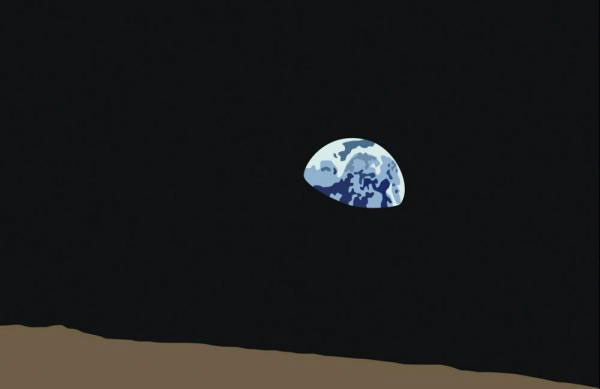- Open today, 10 am to 5 pm.
- Parking & Directions
- Free Admission
From the Library Archives: The Mystery of the Oldest Book
-Liz Weir, Dickson Librarian
The Jean Outland Chrysler Library has an extensive collection of over 300,000 volumes of books, periodicals, auction catalogs, archives, and rare books. We’ve always considered the oldest known book in the collection to be Andrea Palladio’s I Commentari di C. Givlio Cesare, an illustrated translation of Julius Caesar’s commentaries on the Gallic Wars made in 1575.
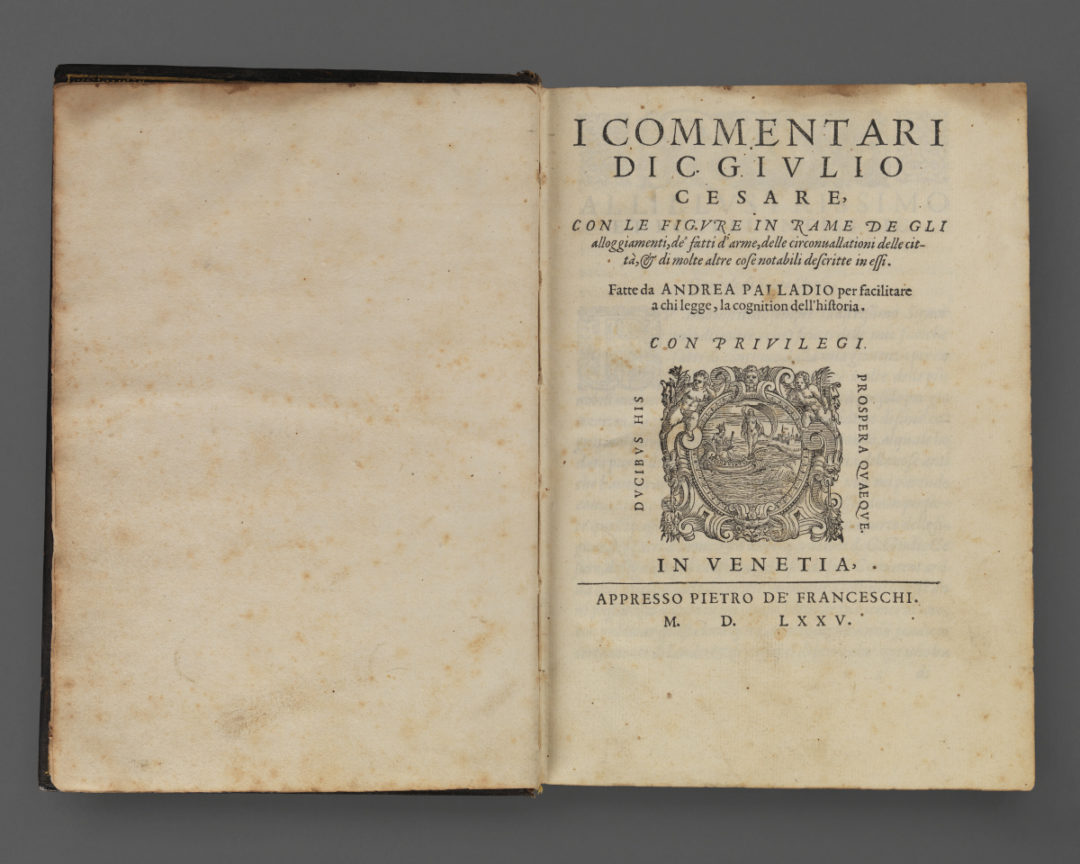
Julius Caesar, I Commentari di C. Givlio Cesare, Venice, 1575, Appresso P. de’Franceschi, Engraved Plates by Andrea Palladio, Gift of Captain Shirley Falcke, RARE NE892.P34 C33 1575
That was until I stumbled across a newspaper article in the archives while researching the Museum’s history. The article, published in 1978, highlighted a time when the Jean Outland Chrysler Library was temporarily housed in the old school administration building. This quote captured my attention: “Wrapped in tissue paper in one corner is the Arabic text of writings by Nued-din Abd-ur-rahman ibn Ahmed, dated 1482.”
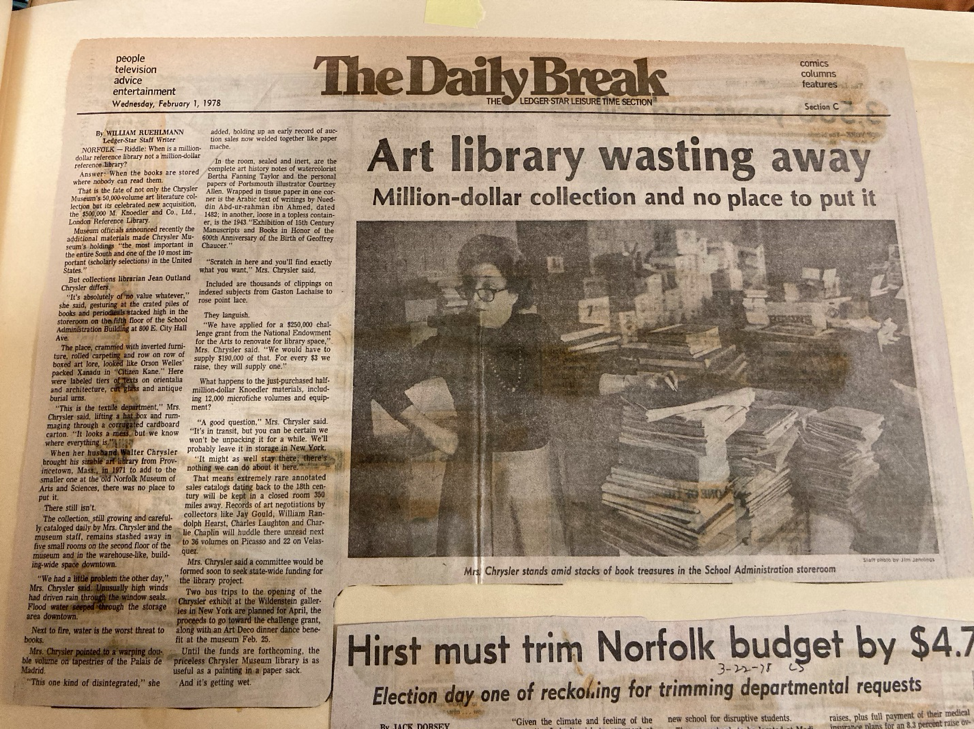
“Art library wasting away.” The Daily Break, February 1, 1978. From the Jean Outland Chrysler Library archives
A book in our collection made before 1575? One older than our work by Andrea Palladio? I was intrigued and turned my attention to a mystery book not cataloged in our system. The protective covering has “Koran?” written on it. Could the mystery book be the one mentioned in the article? Could this be the oldest book in the library? I had so many questions.

Illuminated page from the Qur’an.
I examined the book closely. Aside from some normal wear and tear on the cover, a spine that needs repair, and some staining on a few pages, it’s in excellent condition. The calligraphy is elegant and crisp and the illumination on the front pages shines in the light. Because it has been in a cool and stable environment, the pages, which appear glossy, have been very well-preserved. The library’s climate control keeps the humidity and temperature low for safe storage and preservation.
I, sadly, do not speak or read Arabic and could not identify it on my own, so I reached out to Dr. Shadi Bayadsi, lecturer of world languages and culture at Old Dominion University, to help me with its identification. He teaches Arabic and helped me properly identify the book. It is, indeed, a Qur’an.
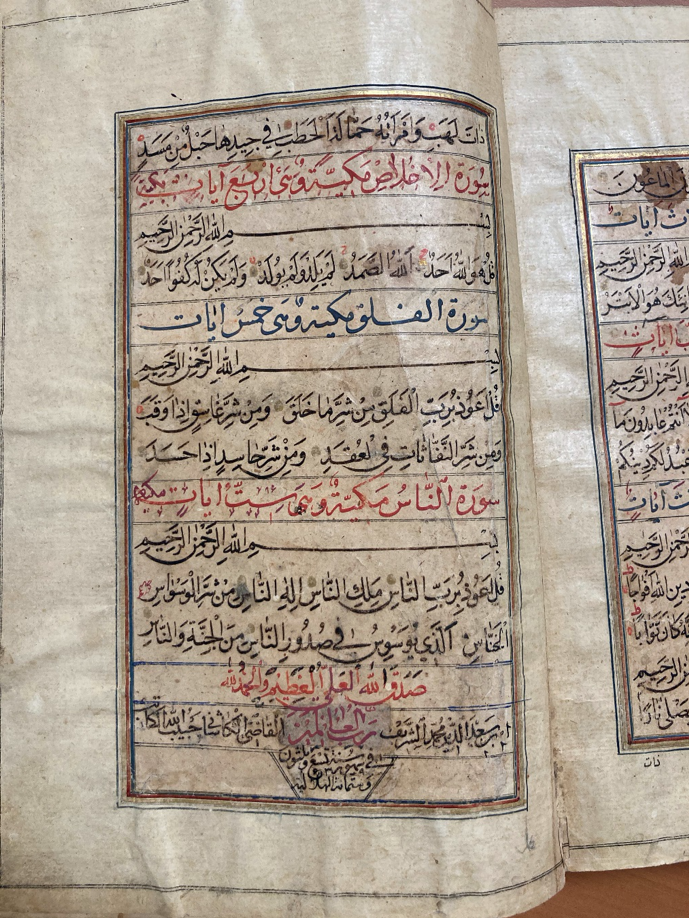
Page of the Qur’an with the date hand-written at the bottom.
On the back page, the date is written out as “تسع وثلاثين وستمائة الهلالية,” or “Thirty-nine six hundred.” The Islamic calendar, the Hijri, has a dating system that coincides with the Prophet Muhammad’s Hijrah, or emigration, from Mecca to Medina. “If you add 578 (the difference in years between the Islamic calendar and the Gregorian) then it will be 1217,” he explained. That means that this book predates the Palladio book by over 300 years!
This Qur’an was made during what is known as the Islamic Golden Age in the Third Caliphate. This period saw the spread of Islam further into North Africa and the Iberian Peninsula, the introduction of paper-making, and the development of new styles of calligraphy and illumination for manuscripts. The calligraphic cursive (naskh) seen in this book is called muhaqqaq, meaning “clear” or “consummate.” It’s considered one of the most beautiful forms of calligraphy and difficult to master. It saw its peak during the thirteenth century.
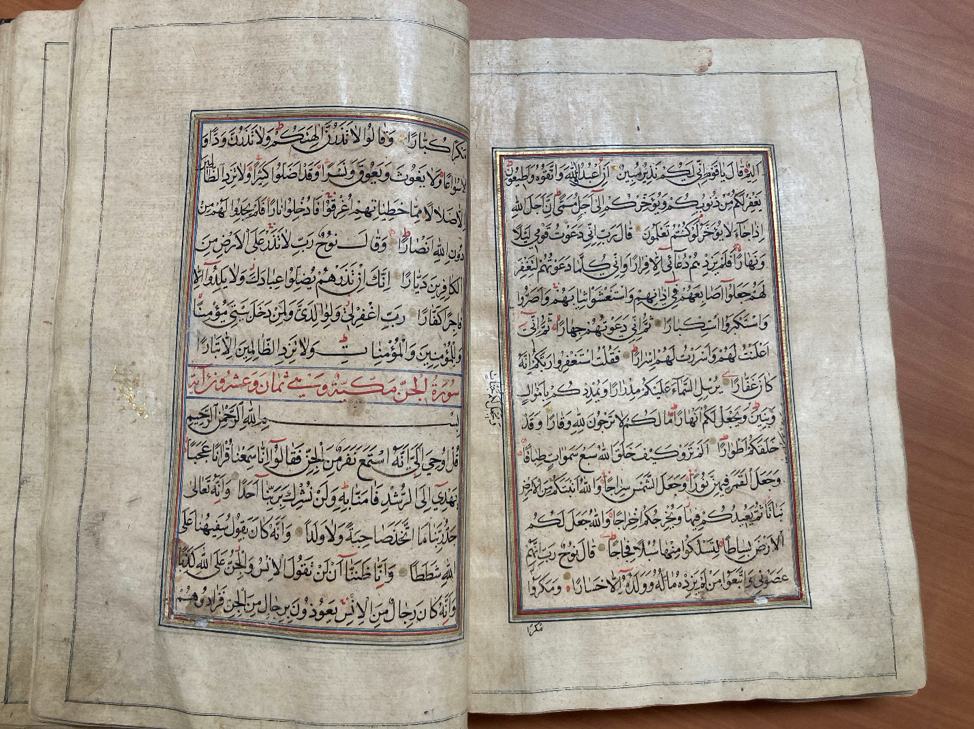
Example of corrective text in the margins.
What makes this Qur’an unusual is the writing in the margins. On some pages, the outer border is either erased away or drawn around the calligraphy. Corrective text is not unheard of in Medieval Qur’ans, though they often come in the form of writing over erased text or writing within the text. Translations within the margins are not unheard of, either. In this case, the corrective writing was done with different colored inks and widths of nibs. More than likely, these corrections were added later and not by the same calligrapher. Other corrections appear to have been made within the text in the form of erasure and writing over it. That practice was a bit more common.
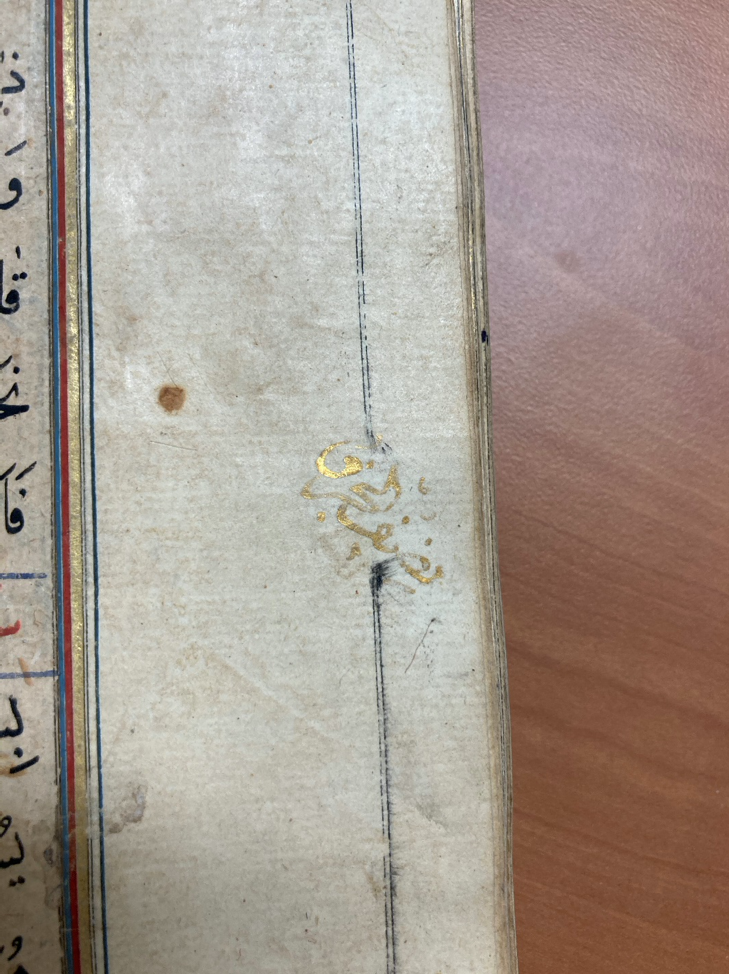
Detail of gilded calligraphy in the margin.
Being able to discover, research, and care for this Qur’an is such a rewarding and exciting experience. It’s expanded my own knowledge of Islam and Islamic calligraphy, medieval Middle Eastern history, and book making and preservation.
Are you working on a research project or curious about other unique publications in the Jean Outland Chrysler Library? Search the online catalog then schedule an appointment today to visit the library by e-mailing library@chrysler.org or calling 757-664-6205.

